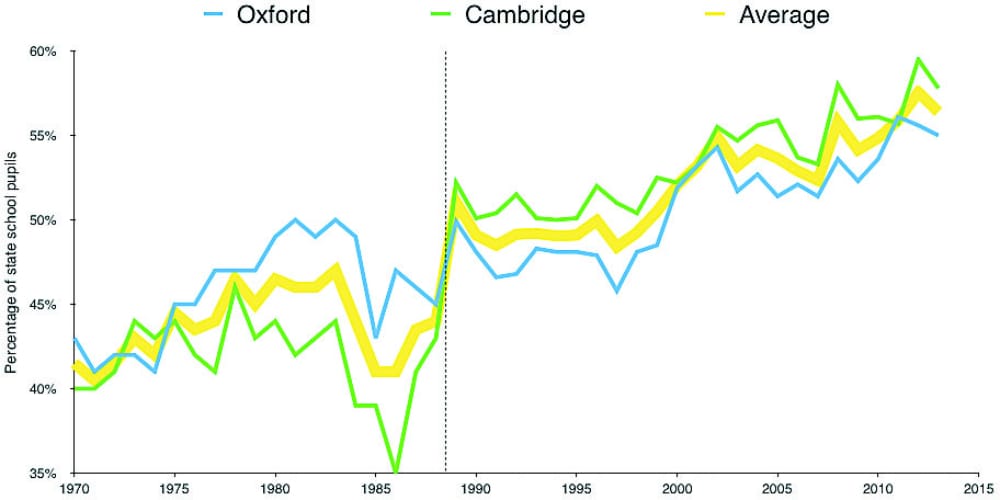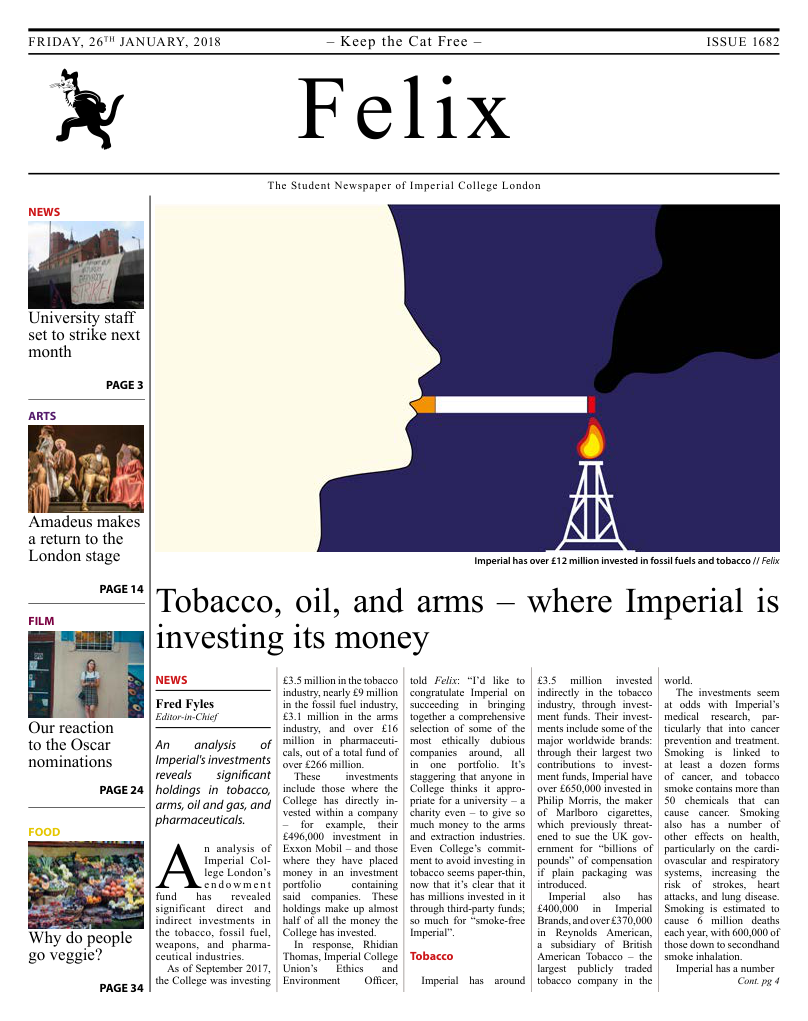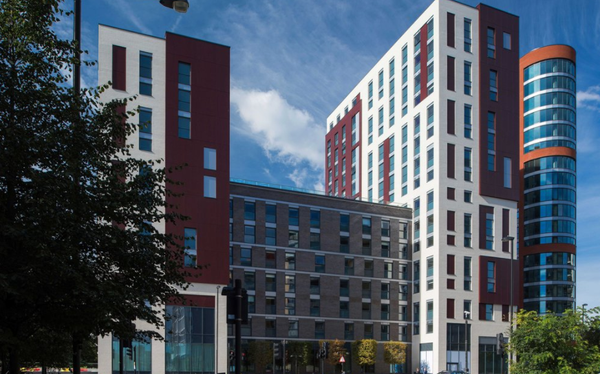Imperial most unequal university in England; Union Council rejects motion for Social Mobility Officer
UCAS data have revealed that Imperial has overtaken Oxbridge to become the least equal university in England.

Imperial has the largest gap between numbers of students from affluent areas and students from disadvantaged neighbourhoods. This makes Imperial the most unequal university in England in terms of socioeconomic status.
Data from university admissions body UCAS reveals, that for 70 out of 132 institutions analysed, people from well-off backgrounds are twice as likely to attend university than those from disadvantaged neighbourhoods. Ten universities had a ratio of more than 9:1. Imperial’s entry rate for students from advantaged areas was eleven times higher than for disadvantaged students.
This is the first time neither Oxford nor Cambridge had the largest equality gap. Oxford was the second most unequal university, while Cambridge was the eighth. Although both are in the top ten for socioeconomic inequality, Oxford and Cambridge have narrowed the gap in their entrance rates. Imperial is one of two universities in the top ten to have become more unequal since 2010. (The University of Bath also showed a slight increase. Applications to Bath have fallen in the wake of a scandal over its vice-chancellor’s pay.)
“Imperial's entry rate was eleven times higher for those from well-off backgrounds”
Seth Fleet, the lead data scientist for UCAS, warned the results should be interpreted with caution. Universities with large numbers of students from London or Scotland tend to have worse entry rate ratios due to fewer people living in areas classed as the ‘most disadvantaged’. Applicants from disadvantaged areas are less likely to achieve high grades at A level or equivalent and the data does not consider offer rates. A number of universities also recruit a third fewer students since 2010.
“If we want to get to a point where things are far more equitable in terms of participation in higher education,” said Fleet, “the way to do it is to encourage more people to apply rather than changing offer-making practices.”
In response to the data, a College spokeperson told Felix: “We firmly believe that an Imperial education should be open to the best and brightest students, whatever their background.” “We have a broad portfolio of activities, including working with schools, colleges and community organisations to inspire, raise aspirations, stimulate interest in STEM subjects and support attainment from primary school through to A-Levels. We also offer the most generous bursary scheme of its kind of any UK university, as well as a wide range of scholarships. However we know that there is more we can do.”
“We are working to review our outreach strategy to understand how we can improve.”

The gap in admittance rates between socioeconomic groups was highlighted in Union Council this week, where a paper for the creation of a Working Class and Social Mobility Liberation Officer role was defeated. The paper, which was proposed by former Council member Lloyd James and seconded by a number of Council members, argued that “ issues faced by students from economically disadvantaged backgrounds are sufficiently unique to merit dedicated individual representation.”
They highlighted the issues that had recently arisen around the College’s bursary scheme: under the 2015 bursary system, roughly 200-400 students were receiving less funding than if they had enrolled in another year.
Fintan O’Connor, Deputy President (Welfare), spoke against the paper. He told Felix: “While we all share the motivation behind the paper, the proposal could be improved to tackle this important objective more effectively.” O’Connor cited debates at other student unions, which suggested “the role would be tokenistic at best, and would function more to single out than to represent”.
“The paper, which proposed a Working Class Liberation Officer, was voted down”
Shervin Sabeghi, the Royal College of Science Union (RCSU) Welfare Officer, was “very disappointed” by the Council response to the paper.
“The general impression from the opposition was that it would be difficult to combat the problems underprivileged students face, so we shouldn’t bother to try. There was a clear 50/50 split between those who voted for/against the paper – the DPW must investigate further into the student opinion of this role,” he said.
James, who proposed the paper, on the admissions gap data revealed today: “These data show that Imperial remains a bastion of economic privilege. Perhaps it is no wonder that Council shot down a motion to create an officer responsible for representation of working class students. We will continue to campaign for greater representation for these students.”
Ariana Sadr-Hashemi, Mental Health Officer, highlighted the need to “remain aware of our biases regarding admission” in response to the UCAS data. “Clearly we are not doing enough to ensure that we attract and admit all students, rather than just those from private schools,” she told Felix.
She said arguments that the role would be “set up to fail” and the officer “wouldn’t be able to do anything”, “demonstrate an animosity towards not just a Social Mobility Officer by the work of Liberation Officers as a whole.” She added: “My colleagues have done absolutely fantastic work this year, and to hear their work dismissed during this meeting was incredibly insulting not just to them, but to all of us who work to make the campus more inclusive.”
The Liberation Review, which is being carried out this academic year, is looking at the structure of the liberation aspect of Imperial College Union. O’Connor told Felix: “The proposed extension to our liberation & community officers should be based on a partnership with the students it would represent, to do justice to our strategic values: democracy, inclusivity, leadership and partnership.”










